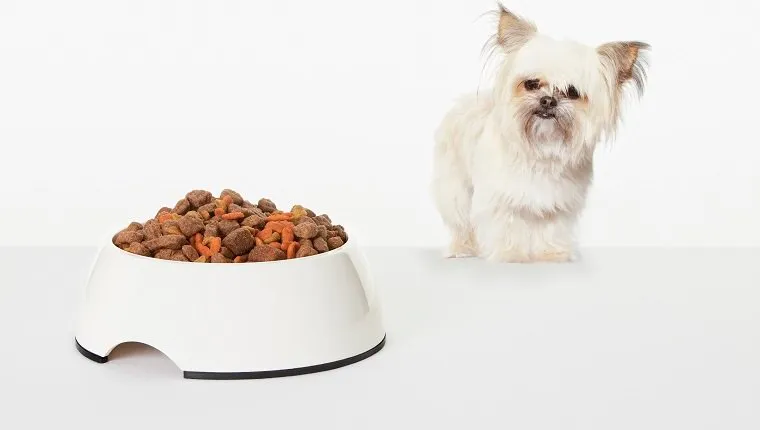Introduction
Ahoy there, fellow pet parents! Are you facing the curious case of your canine companion refusing to chow down unless you’re by their side? Fret not, for Labby is here to fetch some answers! In this guide, we’ll dive into the depths of doggy behavior and unveil the mysteries behind why your furry friend might be playing the picky eater card. So, grab a treat, settle in, and let’s embark on this tail-wagging journey together!
Hunger Games: Understanding Canine Appetite
Canines and Their Quirks
First things first, let’s sniff out the root of the issue. Dogs, much like us, can have peculiar eating habits influenced by a multitude of factors. From their genetic makeup to their upbringing and environment, every pupper’s palate is as unique as a snowflake. So, before we start panicking, let’s unleash our inner detective and dig deeper into the world of doggy dining etiquette.
Nature vs. Nurture: The Role of Evolution
Survival Tactics Unleashed
Picture this: a time when our canine companions roamed the wild, hunting and scavenging for sustenance. In those ancient days, being wary of dining solo was more than just a whim – it was a survival strategy engraved in their DNA. Wolves, the ancestors of domestic dogs, relied on pack dynamics during mealtimes for protection against potential predators. This instinct to eat in the company of their packmates may linger in our modern-day pooches, triggering their reluctance to dine solo.
Pack Mentality: The Power of Social Influence
Bowls and Buddies
Here’s a woof-worthy tidbit: dogs are social creatures through and through. For them, mealtime isn’t just about filling their bellies; it’s a bonding bonanza! When your pooch insists on having you around while they feast, it’s their way of saying, “Hey, you’re part of my pack, and I want to share this experience with you!” So, next time your furry friend nudges your leg at dinner, take it as a compliment – you’re officially part of their wolf pack!
Separation Anxiety: The Heartstrings Behind the Hunger
Love Bites and Empty Bowls
Now, let’s address the elephant in the room – separation anxiety. Just like humans, dogs can experience stress and anxiety when separated from their beloved hoomans. For some pups, mealtime becomes a poignant reminder of your absence, leaving them with little appetite or enthusiasm to eat. It’s their way of saying, “I miss you, and I’d rather wait for you to return before indulging in my kibble!”
Palate Pleasers: Tempting Troublesome Taste Buds
The Finicky Feast Dilemma
Raise your paw if your pooch turns up their nose at the sight of plain old kibble! Some dogs are notorious for their discerning taste buds, craving variety and excitement in their meals. If your furry friend is holding out for a gourmet experience, consider jazzing up their bowl with nutritious add-ons like lean meats, veggies, or even a sprinkle of canine-friendly herbs. After all, a little culinary creativity never hurt anyone – woof!
Medical Matters: When Appetite Ailments Arise
The Check-Up Chow-Down
While most cases of picky eating can be chalked up to behavioral quirks, it’s crucial to rule out any underlying health issues that might be lurking beneath the surface. From dental problems to gastrointestinal woes, a myriad of medical conditions can dampen your pooch’s appetite and leave them turning their nose up at mealtime. That’s where our trusty vets come to the rescue! If you suspect that your furry friend’s reluctance to eat is more than just a passing phase, it’s time to schedule a check-up and get to the bottom of the matter.
Training Tips: Tackling Tableside Tantrums
Mindful Munching 101
So, how can we help our finicky furballs become more independent diners? Fear not, dear pet parents, for Labby’s got a few tricks up his paw! Start by establishing a consistent feeding schedule and sticking to it like glue. By creating a routine, you’re providing your pooch with a sense of security and predictability, making mealtime a less daunting affair. Additionally, consider gradually desensitizing your pup to eating alone by gradually increasing the distance between you and their food bowl during mealtimes. With patience, practice, and plenty of positive reinforcement, you’ll have your pooch dining like a pro in no time!
Conclusion
And there you have it, folks – the woof and whys behind your dog’s refusal to eat without you by their side! Whether it’s a throwback to their wild wolf days or a case of separation anxiety, understanding the nuances of canine behavior can help us become better pet parents and companions to our furry friends. So, the next time your pooch gives you those puppy dog eyes at mealtime, remember – it’s not just about the food; it’s about the love, laughter, and shared moments that make our bond with our four-legged friends truly special. Until next time, keep wagging those tails and savoring those sloppy kisses – Labby out!
- Best Lusha Alternatives for 2025 - April 19, 2025
- Best Overloop Alternatives for 2025 - April 19, 2025
- Best Snov.io Alternatives for 2025 - April 18, 2025



